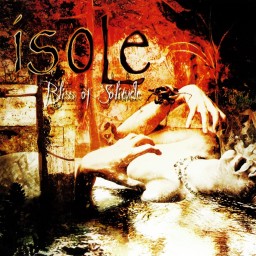 Review by Sonny for Isole - Bliss of Solitude (2008)
Review by Sonny for Isole - Bliss of Solitude (2008)
For me, Isole have been on a bit of a downward trajectory since their late-2000s high water mark and listening to Bliss of Solitude and latest release, Anesidora, back-to-back gives an illustation of why. The latter release feels stripped of any real emotional weight, with the band seemingly seeking a sound more palatable to the mainstream, stoner doom crowd.
So, enough of what went wrong and let us focus on what the band were doing well fifteen years ago, with Bliss of Solitude and it's follow-up Silent Ruins. After forming in 2004 the Swedes released a couple of solid doom metal albums in 2005's Forevermore and '06's Throne of Void, but it was with 2008's Bliss of Solitude that they found themselves nearing the summit of the doom metal mountain. Obviously they were influenced by Candlemass' bombastic style of epic doom metal, but that was certainly not the full extent of what Isole were about, that bombast being tempered by a sorrowful, emotionally resonant side like that being displayed by the likes of Patrick Walker's Warning. The result of this for a release like Bliss of Solitude is that it sounds at once romantically triumphant, but also heart-rending and mournful, like the emotions of the victors of a savage battle won at great cost.
The production is spot on and producer, drummer Jonas Lindström (also of Ereb Altor), have fashioned a perfect guitar sound, being at once huge and weighty whilst still possessing a sorrowful emotion that also keeps it quite personal-sounding. Additional weight is provided by the thundering basswork and Lindström's well-pitched drumming, which act as a perfect foundation for the emotionally-charged dirges of the riffs. The band employs dual guitarists / vocalists in Daniel Bryntse and Crister Olsson, their style of esoteric, layered clean vocals being another source of the album's essential melancholy, particularly on a slower, more inward-looking track like "Imprisoned in Sorrow" or "Dying".
There is a classiness to Isole's best work, of which this is definitely an example, to which not all doom bands are able to aspire. This isn't just about playing super-slow riffs, dragged-out to inordinate lengths, but it is about portraying sadness and sorrow in a relatable and humanly resonant way, being able to express negative emotion in a manner that hints at both redemption and hope without sounding trite or insincere. Bliss of Solitude is a classic slab of emotionally-charged doom metal that deserves a larger share of the praise that is heaped on lesser releases.
